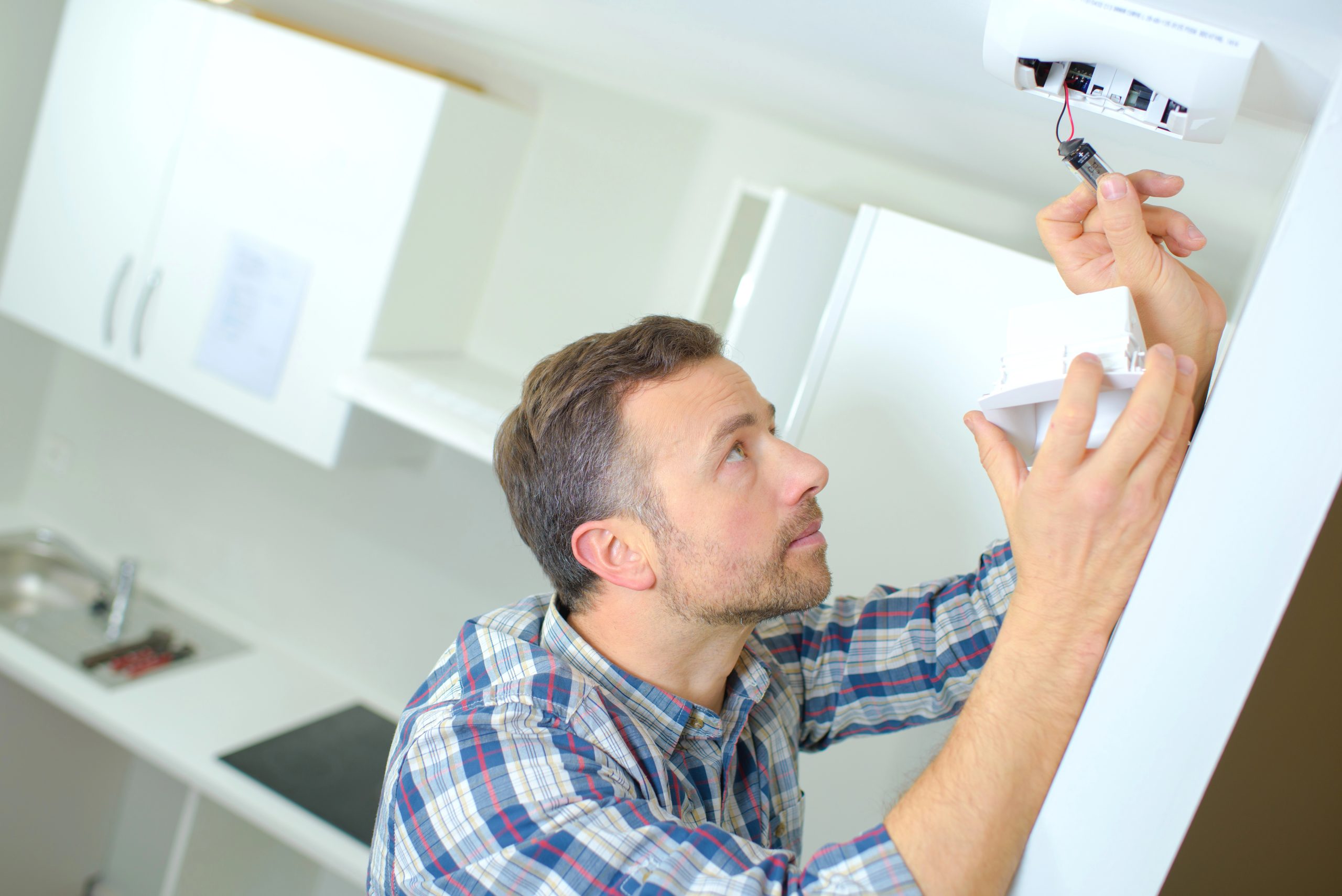We can’t stress enough how crucial it is to regularly test your fire alarms. We’ve seen too many cases where a simple test could have prevented a tragedy. So, let’s talk about how often you should be testing your fire alarms and why it’s so important.
The Short Answer: Test Weekly
If you’re looking for a quick answer, here it is: test your fire alarms weekly. It’s a simple task that takes less than a minute, but it could save your life. Now, let’s break this down further for both domestic and commercial settings.
Testing in Domestic Settings
For homeowners and tenants, here’s what you need to know:
- Weekly Tests: Press the test button on each alarm until the siren sounds. If it doesn’t sound, replace the batteries immediately. If it still doesn’t work, replace the entire unit.
- Monthly Checks: Once a month, use artificial smoke to test each alarm. You can buy smoke test aerosols from most DIY stores.
- Annual Maintenance: Once a year, vacuum the alarms to remove dust and debris. This helps prevent false alarms and ensures the sensors can detect smoke effectively.
- Battery Replacement: For battery-operated alarms, change the batteries annually unless you have 10-year sealed units.
- Unit Replacement: Replace the entire alarm unit every 10 years, or earlier if it starts to chirp intermittently (which indicates it’s nearing the end of its life).
Here’s a quick reference table for domestic testing:
| Frequency | Action |
| Weekly | Press test button |
| Monthly | Use artificial smoke test |
| Annually | Vacuum and change batteries |
| Every 10 years | Replace entire unit |
Testing in Commercial Settings
For businesses and commercial properties, the testing regime is more rigorous:
- Daily Checks: Visually inspect the panel for normal operation.
- Weekly Tests: Test a different call point each week, so all are tested over time. This should be done at the same time each week.
- Monthly Tests: Check batteries and connections on all alarms and the control panel.
- Quarterly Tests: A thorough test by a competent person, checking all devices, batteries, and connections.
- Annual Inspection: A comprehensive check by a qualified fire alarm engineer, including all devices, connections, and control equipment.
Here’s a summary table for commercial testing:
| Frequency | Action |
| Daily | Visual panel check |
| Weekly | Test one call point |
| Monthly | Check batteries and connections |
| Quarterly | Thorough test by competent person |
| Annually | Comprehensive inspection by qualified engineer |
Why is Regular Testing So Important?
You might be wondering, “Do I really need to test that often?”
Here’s why it’s crucial:
- Ensures Functionality: Regular testing ensures your alarms are working when you need them most. We’ve seen cases where alarms failed to sound during a fire simply because the battery was dead.
- Early Problem Detection: Weekly tests can help you spot issues early. A faulty alarm can be replaced before a fire occurs.
- Familiarises You with the Sound: Regular testing helps everyone in the building recognise the alarm sound. In an emergency, every second counts, and you don’t want confusion about whether that sound is the fire alarm or not.
- Peace of Mind: Knowing your alarms are working properly provides invaluable peace of mind.
- Legal Compliance: For businesses, regular testing is a legal requirement. Failing to do so can result in hefty fines or even criminal charges.
Common Mistakes to Avoid
We’ve seen some common mistakes when it comes to alarm testing:
- Ignoring Battery Warnings: Those annoying chirps are telling you something. Don’t ignore them!
- Forgetting to Test All Alarms: In homes with multiple alarms, people often forget to test them all. Each alarm needs to be tested individually.
- Not Keeping Records: Especially in commercial settings, it’s crucial to keep detailed records of all tests and maintenance.
- DIY Repairs: If an alarm isn’t working properly, replace it. Don’t try to repair it yourself.
- Neglecting Interconnected Systems: If your alarms are interconnected, make sure you test the interconnection regularly.
Final Thoughts
Remember, fire alarms are your first line of defence against fire. They don’t ask for much – just a few minutes of your time each week. It’s a small price to pay for the safety of your family or employees.
If you’re unsure about your current testing regime, or if you need help setting up a maintenance schedule, we’re here to help. At Panther Security, we’re committed to making fire safety accessible and manageable for everyone.
Whether you need a one-time inspection, regular maintenance services, or a complete overhaul of your fire alarm system, don’t hesitate to get in touch with us. Our team of experts is always ready to answer your questions and provide the support you need to keep your home or business safe.
Contact Panther Security today at info@panthersecurity.co.uk or 01206 805994.

